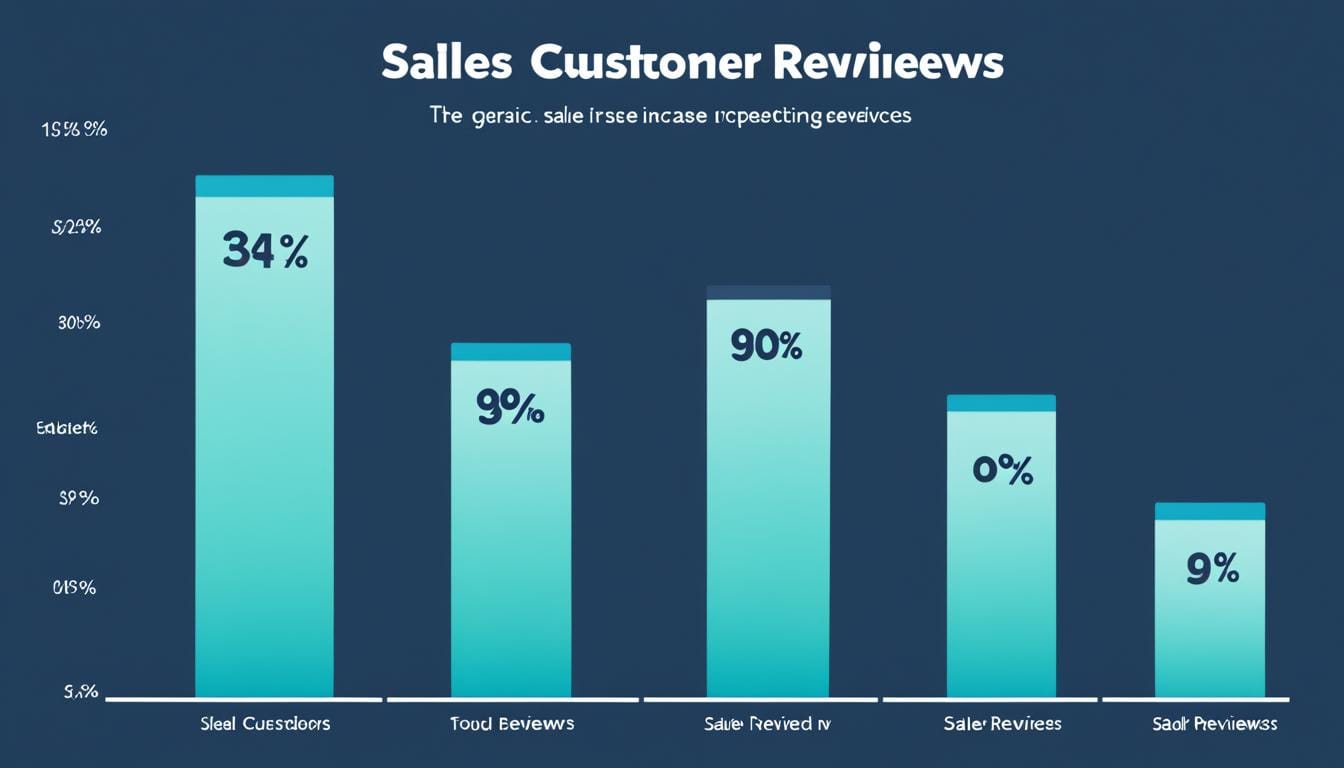Unlocking Trust: Social Proof in Marketing Strategy
Explore how social proof in marketing can enhance trust and credibility, driving conversions and brand loyalty. Learn key strategies and benefits here.

In today's competitive digital world, gaining trust and credibility is key for business success. Using social proof in marketing is a strong strategy. It helps businesses build a solid reputation, boost conversions, and encourage loyalty.
Social proof shows how others' choices influence our buying decisions. It proves a product or service is reliable, making it more attractive to potential buyers.
Adding social proof to marketing has many benefits. It mainly builds trust among customers. Seeing positive feedback from others makes them more likely to buy. Also, it boosts a brand's credibility, showing it's respected by others.
Social proof also directly increases conversion rates. Studies show that testimonials or reviews can boost sales. People trust their peers' opinions, which makes social proof a strong influencer in buying.
Next, we'll dive into social proof in marketing more deeply. We'll look at its various forms and the power it holds, using stats and insights. You'll learn strategies to use social proof in digital marketing effectively. We'll cover the best tools and methods to measure social proof's impact and improve conversions.

Key Takeaways
- Social proof is a powerful tool in building trust and credibility in marketing strategies.
- It creates a sense of trust and confidence among consumers.
- Social proof can significantly increase conversion rates and sales.
- There are various types of social proof, including testimonials, user reviews, and endorsements.
- Measuring the impact of social proof is essential for optimizing marketing efforts.
What is Social Proof?
Social proof is a concept that influences people by showing them what others do. It happens when people see others' actions and opinions and use them as a guide. This idea is very important in marketing. It helps build trust and credibility with potential customers.
Businesses use different types of social proof to seem authentic and boost sales. Let's look at some examples:
Testimonials
Testimonials are positive statements from happy customers. They show the value and quality of a brand. You can find them on websites, product pages, or even as videos. They share real-life happy stories from customers.
Case Studies
Case studies are detailed stories of a brand's successful work. They explain the problems, solutions, and results. This shows the brand's expertise and ability to get good results. Case studies work well in business-to-business marketing to build trust.
User Reviews
User reviews are honest opinions from people who have used a product or service. They offer insights into how satisfied people are with what they bought. Sites like Yelp, Google Reviews, and Amazon are where people leave reviews. These reviews help others decide to buy something.
"Social proof is a powerful tool in marketing. It helps businesses build trust by showing happy experiences from customers. This can lead to more sales." - Marketing Expert
Using social proof the right way can really influence what customers do. Seeing that others are happy and had good experiences makes them trust a brand more. They're more likely to buy something.
The Power of Social Proof: Statistics and Insights
Social proof is key in marketing. It shows how others' good experiences make brands more trustworthy. This leads to more people buying. Now, let's dig into some stats that show how powerful social proof is.
The Impact on Consumer Behavior
Social proof changes how people shop. Studies show important numbers:
More than 90% of consumers read online reviews before buying.Over 70% of consumers trust customer reviews as much as personal recommendations.Products with positive reviews convert 183% more than those without.User-generated content on social media leads to a 4.5% higher conversion rate.
These numbers show social proof's big impact. It makes people trust more and feel less risk when buying.
Building Trust and Credibility
Social proof makes businesses seem more trustworthy. Positive feedback from customers helps a lot.
The Nielsen Consumer Trust Index study shows social proof is very influential:
More than 80% of consumers trust online reviews.Over 70% of consumers trust expert opinions.Celebrity endorsements can increase purchase intent by up to 20%.
These points urge businesses to use social proof in their marketing. Testimonials and reviews make brands seem more trustworthy.
Enhancing Conversion Rates
Trust from social proof boosts sales. Studies say using social proof the right way can really improve sales. Here are some stats:
Displaying customer reviews can increase conversion rates by up to 270%.A product with 50+ reviews has a 4.6% higher conversion rate than products with fewer reviews.Showing the number of social media followers or subscribers can lead to a 25% increase in conversions.
Stats show a clear link between social proof and sales. Customer stories, ratings, and social media can convince people to buy.

| Social Proof Strategy | Conversion Rate Increase |
|---|---|
| Customer Testimonials | 34% |
| Celebrity Endorsements | 28% |
| Case Studies | 25% |
| User Reviews | 32% |
This table shows how different social proof methods boost sales. Using these methods well can improve marketing and increase sales.
We've seen how stats and insights reveal social proof's power. Next, we'll look at how businesses can use social proof in digital marketing.
Leveraging Social Proof in Digital Marketing
Leveraging social proof is a key strategy in digital marketing. It can greatly boost a brand's success. It helps businesses build trust, grow their credibility, and get more conversions. We will look at different ways to use social proof online.
Social Media Endorsements
Using social media endorsements is a smart move. Influencers and celebrities greatly influence what people buy. Their support makes a product look good. Brands should work with influencers who fit their audience to improve visibility and how people see their brand.
Influencer Marketing
Influencer marketing is now a go-to strategy. Brands work with influencers to promote their stuff to loyal followers. This type of social proof works well because influencers have their followers' trust.
User-Generated Content
User-generated content (UGC) is a strong form of social proof. It encourages customers to share their positive experiences. Brands show off real stories of happy customers. UGC helps build trust as people see feedback from other users.
"User-generated content allows brands to tap into the social networks and communities their customers are already part of, and shares the marketing workload. It can generate fresh content in a time where content creation tends to be an expensive and difficult process." - Ryan Holmes, CEO of Hootsuite
Brands can boost their strategies using social proof like social media endorsements, influencer marketing, and UGC. This creates a good perception among their audience.
Social Proof in Digital Marketing Strategies - Comparison Table
| Social Proof Technique | Description | Benefits |
|---|---|---|
| Social Media Endorsements | Influencers or celebrities promote a brand's product or service on social media. | Increased visibility, enhanced brand perception, expanded reach. |
| Influencer Marketing | Partnership with influencers to promote a brand's offerings. | Credibility, trust, access to engaged audiences. |
| User-Generated Content | Customers share their experiences, reviews, and testimonials. | Authenticity, trust, social engagement. |
By mixing these social proof methods, brands can connect with their audience. They build credibility and trust with potential customers. Using social proof in digital marketing helps businesses get more conversions and reach their goals.
Types of Social Proof Strategies
Businesses can pick from many social proof strategies to build trust. These strategies help influence how people view and buy from a brand. Here are some key methods:
Customer Testimonials
Customer testimonials are powerful. They are positive statements from people who've tried a product or service. Putting these reviews where others can see them helps win over new customers.
Celebrity Endorsements
When a famous person likes a product, it makes the brand look good. Having a celebrity on your side helps attract fans and build trust.
Social Media Followers
Having lots of followers shows a brand is liked and trusted. It tells potential buyers that this brand is worth their time. Showing off how many people follow you can boost your brand’s image.
Expert Opinions
Experts' advice is very trusting. Working with them can make your brand seem more reliable. You can share their views in blog posts or interviews to influence shoppers.
"We've seen a 15% increase in conversions since we started using customer testimonials on our website. It's incredible how social proof can make such a difference in building trust with our potential customers." - Jane Adams, Marketing Manager at XYZ Corporation
Summary
Social proof is essential for gaining customers' trust and making sales. Using testimonials, celebrity support, lots of followers, or expert advice works. These methods shape how people see a brand and decide to buy.
We'll look at how to use social proof to boost conversions and grow next.

How to Use Social Proof for Conversion Optimization
To increase conversions, it's vital to place social proof wisely on your site and pages. Using social proof right means visitors feel more confident and are more likely to act. Here's how to make social proof work for boosting conversions:
1. Display Customer Testimonials
Show off real and persuasive customer testimonials. Focus on positive feedback about what you offer. Testimonials prove to visitors that others like your brand, which builds trust.
2. Leverage User Reviews
Ask customers to post reviews and ratings either on your site or on review sites. Reviews strongly influence buying decisions. Make it easy for visitors to see and evaluate these reviews.
3. Utilize Influencer Endorsements
Work with influencers who are well-liked and trusted. Partnering with them lets them promote your offerings. Influencer partnerships can boost your brand's credibility and lead to more sales.
4. Display Social Media Followers and Engagement
Highlight your number of social media followers and how much they interact with you. For example, showing off follower counts on networks like Facebook or Instagram shows you're popular. This can persuade others to join your fan base.
5. Highlight Expert Opinions and Certifications
Show off any support or certifications from experts or respected bodies. This shows your brand is trustable and reputable, making potential buyers more confident.
Putting social proof in the right spots is key for maximum impact. These steps help build trust and credibility, encourage conversions, and improve profits.
Essential Social Proof Tools
Businesses can use many tools and platforms for social proof strategies. These help gather and show social proof, build trust with customers, and increase conversions. Here are some important social proof tools for better marketing:
1. Review Management Platforms
Platforms like Trustpilot and Yotpo let businesses collect and show customer reviews and ratings. By showcasing positive feedback, these tools boost credibility and help manage how customers feel.
2. Social Media Monitoring Tools
Tools like Hootsuite and Brandwatch help businesses keep an eye on social media chatter about their brand. They find positive posts and influential mentions, proving their brand's worth.
3. Widget Plugins
Plugins like ProveSource and UseProof show real-time alerts on websites. These alerts, like recent buys or sign-ups, show off a brand's popularity and trustworthiness.
Using these key social proof tools boosts marketing efforts. They offer insights, build credibility, and help increase sales.

Measuring the Impact of Social Proof
In marketing, knowing the effect of social proof is key. By studying important stats, you learn how it changes customer actions. This helps improve your marketing plans.
Conversion rate is a key stat to look at. It tells you how many people did what you wanted after seeing social proof. This includes actions like buying, signing up, or downloading.
Don't forget to check how engaged people are. Look at likes, shares, comments, and retweets. High engagement means people like your social proof. It shows interest in what you offer.
Also, see if social proof changes how much customers spend. Compare the average order value of customers who saw social proof to those who didn't. If the first group spends more, your social proof is working.
"To know what marketing works best, measure the effect of social proof. Then, refine your strategies."
Social Proof Impact Case Study
A top e-commerce company found that adding customer reviews boosted sales by 23%. It showed that social proof builds trust and confidence in buyers.
Keep checking how your social proof strategies perform. Use A/B testing to make them even better.
Tracking Tools and Analytics
There are tools and platforms to help track the impact of social proof. They help you see stats, visualize data, and get insights. Popular ones include:
- Google Analytics: Lets you watch website traffic, see conversion rates, and learn about user behavior.
- Social media insights: Platforms offer analytics to track how much people engage with your content.
- Review management platforms: They analyze customer reviews and ratings. This helps you see the effect on your brand.
Using these tools helps understand how social proof changes your marketing. This lets you make informed decisions.
Next, we'll wrap up our look at social proof in marketing. We'll highlight the main points of this article.
Conclusion
Social proof is vital in marketing. It helps build trust, boosts sales, and keeps customers loyal. Using social proof, companies can show they are credible and genuine. This attracts more customers and keeps them coming back.
Social proof gives potential customers peace of mind. Seeing others happy with a product makes them more likely to buy it. This can increase sales and profits for businesses.
In the digital world, social proof is everywhere. Online reviews and social media make it easy for businesses to share positive experiences. This helps spread the word about a brand in a meaningful way.
Finally, social proof shouldn't be ignored by marketers. It's key for trust, better customer views, and business growth. When added to a marketing plan, it can open new chances for success in a tough market.
FAQ
What is social proof in marketing?
Social proof in marketing means using others' influence to encourage people to act. It uses testimonials, reviews, and more to build trust.
What are the benefits of social proof in marketing?
Social proof can do a lot for businesses. It builds trust, increases brand awareness, and helps with customer loyalty. Highlighting positive feedback from others boosts a brand’s image.
What are some examples of social proof?
For social proof, think of customer testimonials and product reviews. Influencer endorsements and social media reactions are also key examples. They all show how others enjoy a product or service.
What are some statistics and insights about the power of social proof?
Consider this: 92% of people trust friends and family's recommendations the most. Also, 88% view online reviews like personal advice. Social proof can raise conversions by up to 40%, greatly impacting choices.
How can social proof be leveraged in digital marketing?
In digital marketing, social proof comes from testimonials and influencer endorsements. Showing off social media activity and prompting user content with contests helps too. These methods increase online trust and credibility.
What are some effective social proof strategies?
Effective strategies feature customer reviews and celebrity support. They also highlight social media interactions and expert or award recognitions. Using user content also adds social validation, boosting brand trust.
How can social proof be used for conversion optimization?
For conversion optimization, place testimonials and trust symbols on key pages. Include success stories and social proof in calls to action. Make sure visitors see and find this proof compelling.
What are some essential social proof tools?
Key tools include review platforms like Trustpilot and social monitoring with Hootsuite. Widget plugins such as ProvenExpert enhance display. They streamline managing and showing social proof.
How can the impact of social proof be measured?
Measure social proof's impact by looking at conversion and engagement rates. Also, see how customer numbers change. Use A/B tests and tools like Google Analytics for precise insights.
What is the importance of social proof in marketing?
Social proof is vital in marketing. It earns trust, sets up credibility, and sways buying decisions. It sets brands apart and uplifts customer views. By sharing others' good experiences, it increases sales.




